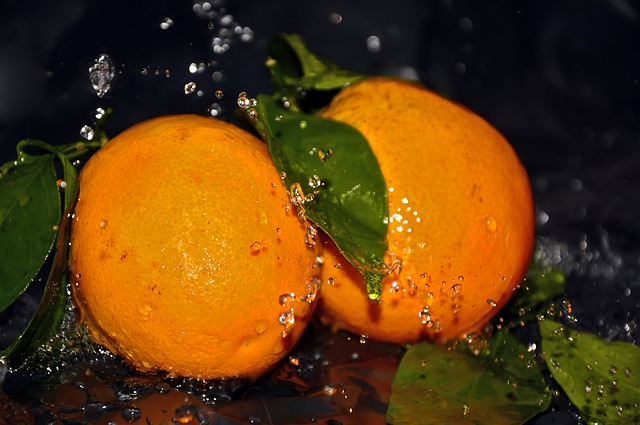Why is it important to wash Vegetables and Fruits before Juicing?

Wash your vegetables and fruits with distilled water before Juicing or eating them
Contamination Risk
When vegetables are grown in the ground, such as potatoes, they are at increased risk for coming in contact with contaminants that can commonly live in the soil. Vegetables also can become contaminated in their various production phases before arriving at your local grocery store. From preparation to storage time, there are opportunities for contaminants, especially bacteria, to live on your vegetables. However, because the kinds of pesticides used are strictly monitored, as well as the amount of pesticide residue left on fruits and vegetables, the risk of getting ill from pesticides on produce is low, especially if you wash your produce before juicing or eating.
Misconception
Because organically grown produce does not involve using pesticides or growth hormones, you may believe you do not have to wash these vegetables. However, even organically grown vegetables can have contaminants from the soil. For this reason, you should always wash any vegetables regardless of their source — including organically grown produce and produce purchased from a farmer’s market.
What are the best ways to keep raw fruits and vegetables safe?
- Wash your hands with hot soapy water before and after preparing juice.
- Clean your counter top, cutting boards, and utensils after peeling produce and before cutting and chopping.
- Do not wash produce with soaps or detergents.
- Use distilled water to wash your items, vegetables and fruits.
- For produce with thick skin, use a vegetable brush to help wash away hard-to-remove microbes.
- Produce with a lot of nooks and crannies like cauliflower, broccoli or lettuce should be soaked for 1 to 2 minutes in cold distilled water.
- Some produce such as raspberries should not be soaked in water. Put fragile produce in a colander and spray it with distilled water.
- After washing, dry with clean paper towel. This can remove more bacteria.
- Eating on the run? Fill a spray bottle with distilled water and use it to wash apples and other fruits.
- Don’t forget that homegrown, farmers market, and grocery store fruits and vegetables should also be well washed.
- Once cut or peeled, refrigerate as soon as possible at around 4-5 Celsius
- Do not purchase cut produce that is not refrigerated.
How to Wash
Wash with bi-carbonate of soda first with tap water and then wash residue off with distilled water. You should wash vegetables prior to cutting them. If your vegetables have tough skins like potatoes or bell peppers you can wash them with distilled water and use a scrub brush to remove contaminants. Softer-skinned vegetables like tomatoes can be washed under cold distilled water while you rub the skin to manually remove bacteria. Drying them with paper tower carefully also can remove extra bacteria. Always wash your hands after washing vegetables, but don’t use soaps or detergents on your vegetables. These are often are not made for consumption and can make you ill.
